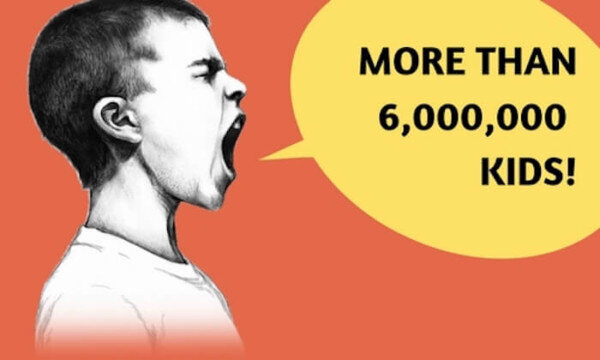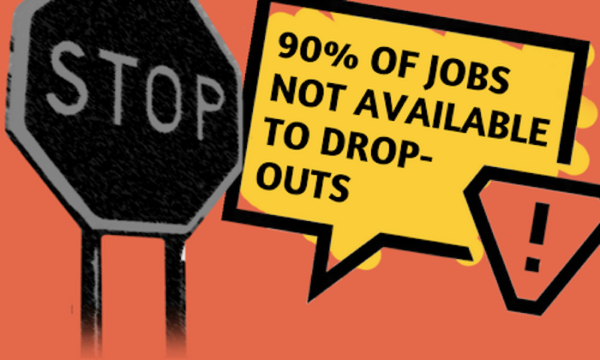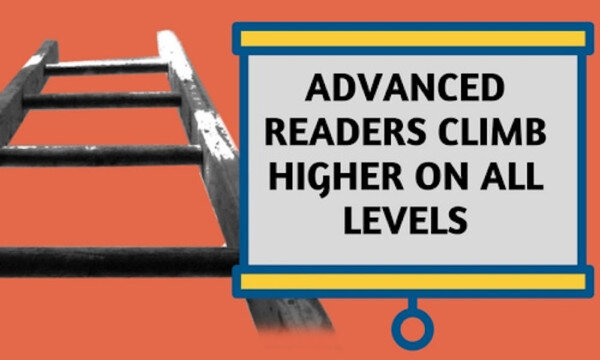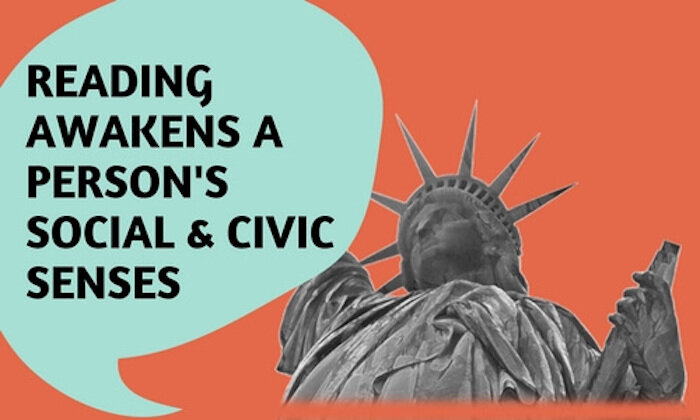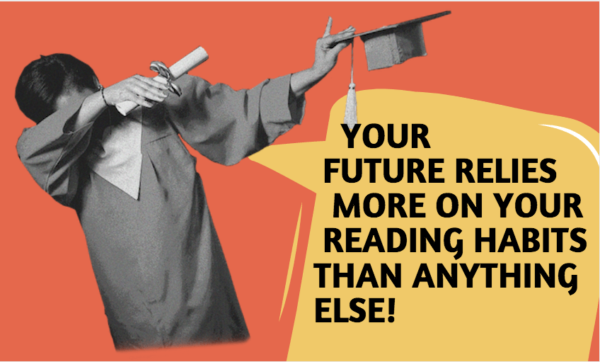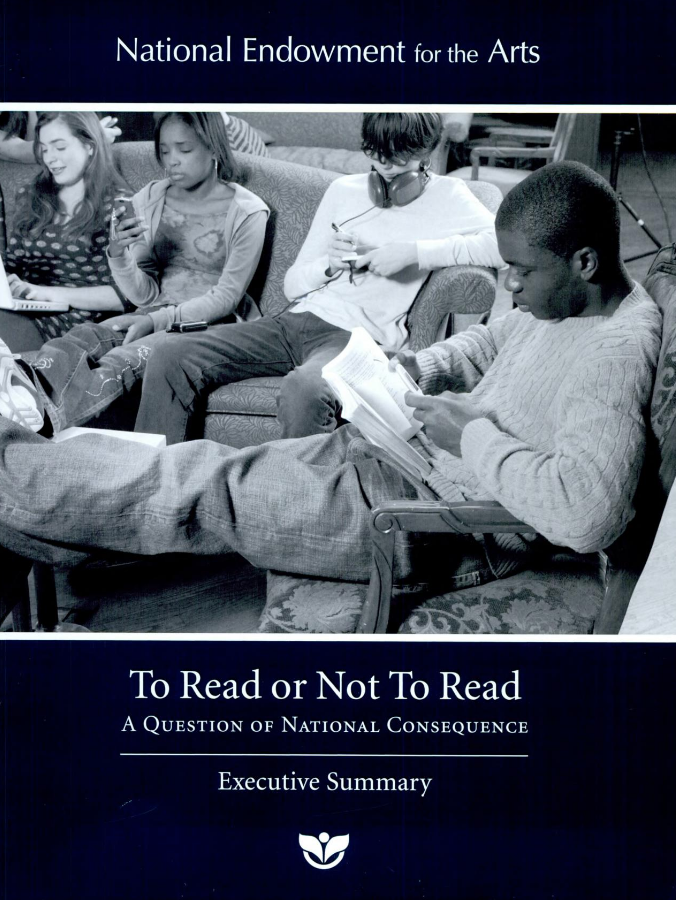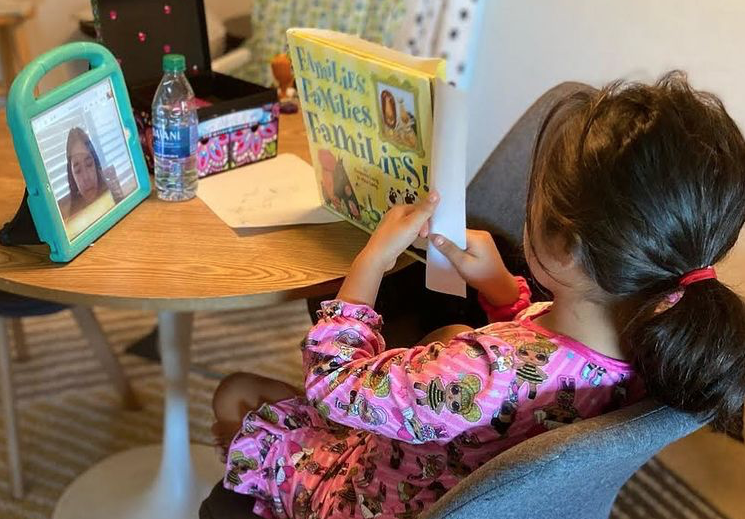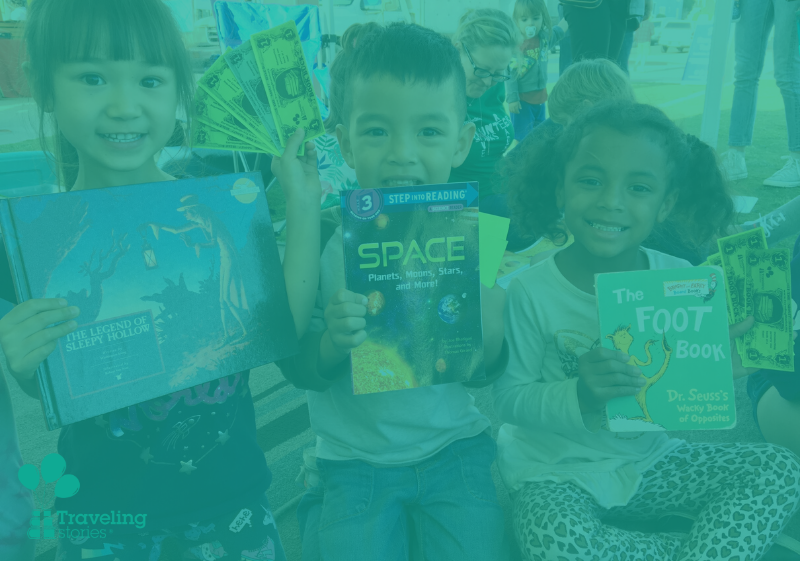Why Read Matters: Shocking American Literacy Stats
Why We’re Inspiring a Love of Reading
Founded in 2010, Traveling Stories wanted to provide a program for at-risk children that would not only help them learn to read, but also help them fall in love with reading. But why does reading matter so much? In this blog, you’ll learn the shocking statistics on American literacy and the negative economic and social impact caused by poor reading skills. We’ll also share what our nonprofit is doing to provide literacy support and mentoring to children to help them fall in love with reading and empower them to achieve their dreams.
Why Reading Matters
Negative Outcomes Because of Poor Reading Skills
More than six million children in the United States will experience negative academic, personal and social outcomes every year because of poor reading skills. Children who can’t read proficiently by the 4th grade are up to 15 times more likely to drop-out of school. Sadly, in the U.S., two-thirds of all children and 82% of children in low-income families read below grade level. (Annie E Casey Foundation & NAEP)
90% of Job Are Not Available to Drop-Outs
Children who don’t finish high school are not qualified for 90% of jobs and will earn an average of $23,000 a year. Their peers who do go to college will earn an average of $48,000 a year. (Annie E Casey Foundation)
Advanced Readers Climb Higher on the Ladder
Advanced readers accrue personal, professional, and social advantages, while deficient readers run higher risks of failure in all three areas. Examples of this are prevalent in research studies and day-to-day life, but we are seeing a steady decline in the amount of time spent reading by teens, college students, and adults (National Endowment of the Arts, 2007).
Reading Awakens a Social and Civic Sense
In the same way that low literacy levels contribute to negative academic, social and personal behavior, Gioia writes that “regular reading not only boosts the likelihood of an individual’s academic and economic success—facts that are not especially surprising—but it also seems to awaken a person’s social and civic sense. Reading correlates with almost every measurement of positive personal and social behavior surveyed.” (Dana Gioia, former Chairman of National Endowment for the Arts)
Reading Has More Influence on Attainment Than Socio-Economic Status
Research indicates that reading habits have more influence on educational attainment than socio-economic status or having a parent with a degree. (Organization for Economic Cooperation and Development, 2002, and Sullivan & Brown, 2013, London: Institute of Education).
But beyond academic achievement, reading for pleasure also has multiple positive personal and social outcomes.
Regular Readers Contribute to Their Communities More
Regular readers not only experience better lives, but they contribute to their communities more. Regular readers are more than 3 times as likely as non-readers to visit museums, attend plays or concerts, and create artworks of their own. They are more likely to play sports, attend sporting events, or do outdoor activities.
They are also more than twice as likely as non-readers to volunteer or do charity work. (National Endowment of the Arts)
Decline in Reading Among Teenage and Adult Americans
In the preface of a study titled “To Read or Not to Read: A Question of National Consequence,” Dana Gioia, former Chairman of National Endowment for the Arts, wrote:
“The story the data tells is simple, consistent, and alarming… There is a general decline in reading among teenage and adult Americans. Most alarming, both reading ability and the habit of regular reading have greatly declined among college graduates. These negative trends have more than literary importance. As this report makes clear, the declines have demonstrable social, economic, cultural, and civic implications.”
The study pointed out that kids are reading more compulsory through school, but less voluntary for leisure. Five percent of kids said they read 6+ hours for fun a week compared to 33 percent of kids who said they did 6+ hours of homework every week.
BOP Consulting worked with The Reading Agency in 2015 to conduct a study titled “Literature Review: The impact of reading for pleasure and empowerment.” Their findings suggest that long-term reading habits are influenced by the reader’s motivation. Citing a study published by the Journal of Educational Psychology, BOP Consulting writes:
“Children and young people must achieve enjoyment and gratification as outcomes from their reading experiences in order to pursue autonomous reading. They must also feel motivated to read based on their own intrinsic motivation or the many initiatives designed to increase reading behaviour will not be successful.”
BOP Consulting said, “Research findings indicates that children & young people will read more if they have some control over their opportunities to read, and those broader outcomes beyond enjoyment (including attainment) are more likely to be achieved in children are motivated to read through intrinsic over extrinsic motivations.”
These studies suggest a correlation between reading for pleasure and the following outcomes:
Positive mental imagery (imagination)
Emotional competency
Empathy and understanding
More knowledge – including about health and personal development
More engagement in meaningful activity, which plays a part in filling the gaps left by loneliness and isolation
Traveling Stories Empowers Children Through Literacy Support and Mentoring
In 2011, nonprofit Traveling Stories created the StoryTent: a mobile literacy program that would provide one-on-one reading support and motivational incentives to kids between the ages of two and 12 years old.
Traveling Stories created the StoryTent after identifying several challenges that their key demographic faced, including:
Lack of voluntary reading opportunities within school
Lack of money to pay for tutoring
Lack of transportation to attend programs outside of their community
Lack of child care to provide for one child while a sibling was attending tutoring or another program
Lack of enthusiasm for reading
Lack of support from English-second-language parents
Our In-Person StoryTent
Instead of taking the StoryTent to schools or libraries, we strategically chose to offer the in-person StoryTent program weekly at non-academic community hotspots like farmers markets, malls, and restaurants. The StoryTent program takes place every week at the same time at each hotspot. It’s a comfortable, inviting environment with carpets on the ground, comfortable chairs, multiple bins full of diverse books.
Our Virtual StoryTent
In response to COVID-19, Traveling Stories also created the Virtual StoryTent. Our Virtual StoryTent offers personalized reading support for students entering K-2nd grade. Children are matched with a vetted and trained reading mentor for one-one-one video calls every week for 6 weeks. During Virtual StoryTent video calls, children and their mentors read together and talk about books. Children earn Book Bucks to spend on prizes that can be shipped to them at no cost.
Results from Our Reading Support Programs
While some reluctant readers are initially motivated purely by the prizes, we observe that over time the readers find more books that they can relate to and begin to read more for enjoyment.
More than 80% of kids who visit a StoryTent return to read again. Children who attend the StoryTent weekly experience improvements in reading and comprehension, communication, self-confidence, and understanding of other cultures.
The prizes that children earn with their Book Bucks and take home become marketing material to attract other children to the program. For example, a child may ask their friend, “Where did you get that toy?” The StoryTent participant explains that they bought it with money they earned by reading. The nonparticipant asks their parents to bring them to the program and begins earning their own prizes. This feature of the program helps connect students with peer readers by making it socially acceptable to talk about reading.
Traveling Stories’ Goal
Our goal with the StoryTent program is to empower kids to outsmart poverty by helping them fall in love with reading by the 4th grade. We selected 4th grade as our goal because from birth to 4th grade children are learning to read, and from 4th grade on, children are reading to learn. If kids don’t develop reading proficiency by 4th grade, they will miss out on learning and face additional challenges the rest of their life.
Based on research, we believe that investing in children’s reading skills will have more impact on their future academic, personal, and social achievements than anything else. We do note that a child’s basic needs must first be met, or even literacy cannot work its magic.
How We Measure Success
To measure the success of each StoryTent we collect qualitative and quantitative data.
Through a digital check-in system we track each visit a child makes to the program including the duration of their visit and their attitude toward reading before and after the program.
We partnered with a company called Tablecloth in 2017 to improve our collection methods and are currently working with them to sort and analyze the data that is collected weekly. In 2018 we will introduce an additional method for tracking program outcomes. This new tool is a Site Word Challenge that will help measure program participant’s reading levels.
As we grow, Traveling Stories is looking for ways to improve our data collection and methods for tracking program outcomes. We hope to secure funding to conduct a case study that will measure the impact of the StoryTent on participants compared to a control group of children who don’t come to the program.
In 2017 Traveling Stories had 3 weekly StoryTents and one monthly StoryTent in San Diego and served over 3,000 kids. Our goal is to expand the programs from 3 a week to 10 a week by the year 2020. Based on historical data, we expect each program to serve 500+ children a year with opportunity to serve more as the program grows in popularity.
Help Us Empower Children to Achieve Their Dreams
Learn how you can help our nonprofit continue to provide literacy support and mentoring to at-risk children.


